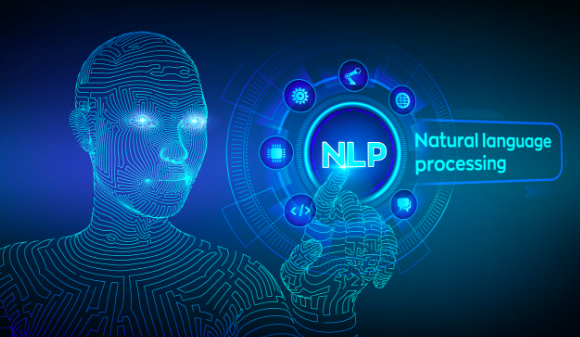Natural Language Processing

Introduction:
Natural language processing (NLP) is the ability of computers to understand and process human language. It is a rapidly growing field of artificial intelligence (AI) with a wide range of applications, from machine translation to chatbots.
NLP is based on the idea that language can be represented as a formal system, such as a grammar or a statistical model. This allows computers to analyze and understand the meaning of text and speech.
The Benefits of NLP
NLP has the potential to revolutionize the way we interact with computers. Here are just a few of the benefits of NLP:
- More natural interaction: NLP allows us to interact with computers in a more natural way, using our own language. This can make computers more accessible and user-friendly.
- Improved accuracy: NLP can help computers to understand the meaning of text and speech more accurately. This can lead to better performance in tasks such as machine translation and chatbots.
- New applications: NLP is opening up new possibilities for applications such as sentiment analysis, question answering, and text summarization.
The Future of NLP
NLP is still a young field, but it is growing rapidly. As NLP technology continues to improve, we can expect to see even more innovative and groundbreaking applications of this technology in the years to come.
Here are some of the potential future applications of NLP:
- Personalized assistants: NLP-powered assistants can understand our natural language and help us with tasks such as scheduling appointments, making reservations, and finding information.
- Virtual reality and augmented reality: NLP can be used to create more immersive and interactive experiences in virtual reality and augmented reality.
- Medical diagnosis: NLP can be used to analyze medical records and help doctors to diagnose diseases more accurately.
- Financial trading: NLP can be used to analyze financial data and help traders to make better decisions.
- Customer service: NLP can be used to create chatbots that can answer customer questions and resolve issues more quickly and efficiently.
These are just a few of the many potential future applications of NLP. As NLP technology continues to improve, we can expect to see even more innovative and groundbreaking applications of this technology in the years to come.
How Can You Get Involved in NLP?
If you are interested in getting involved in NLP, there are a few things you can do:
- Learn about the basics of NLP: There are many resources available online and in libraries that can teach you about the basics of NLP.
- Get involved in the NLP community: There are many online forums and communities where you can connect with other people who are interested in NLP.
- Contribute to open source NLP projects: There are many open source NLP projects that you can contribute to. This is a great way to learn about NLP and to get your foot in the door.
- Pursue a career in NLP: There are many job opportunities available in NLP. If you are interested in pursuing a career in NLP, there are many programs available that can help you to develop the skills you need.
NLP is a rapidly growing field with a bright future. If you are interested in artificial intelligence, natural language processing is a great field to get involved in.


